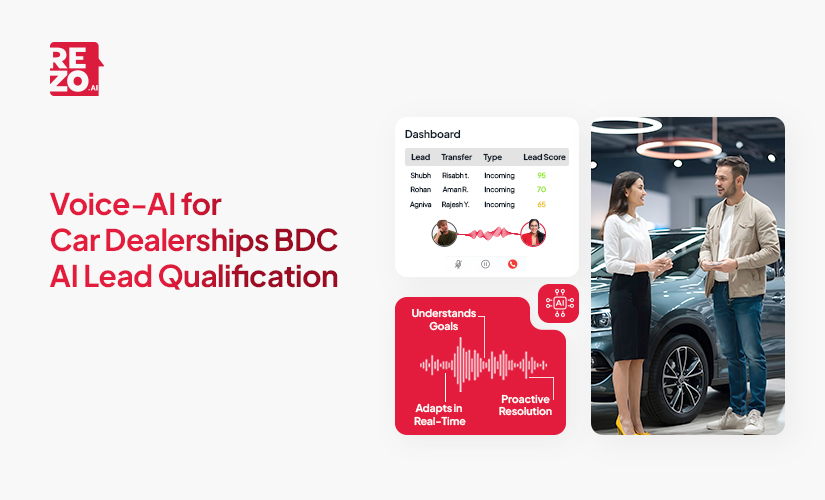
AI in Automotive Industry: Use Cases & Benefits

AI in Automotive Industry: Use Cases & Benefits


From enhancing safety measures and facilitating autonomous vehicles to improving manufacturing processes and enabling automated customer experience, AI is truly revolutionizing the automotive industry. In this blog, we will delve into the myriad use cases of AI in the automotive industry, and discuss how it’s paving the way for innovations that were once thought impossible. So, buckle up and join us on this fascinating journey into the future of the automotive industry.
How is AI Used in Automobile Industry?
Artificial Intelligence in the automotive industry extends far beyond just autonomous and self-driving cars. It's transforming various facets of the sector, from design and production to user experience. AI has made a significant impact on manufacturing and automotive industries, with projections indicating a tremendous growth rate of nearly 40%, reaching $15.9 billion by 2027. That's substantial!
So, how exactly is AI used in automobile industry? The key lies in the seamless integration of AI and automation across the design, production, and operation of vehicles. Let's explore the various applications of AI in the automotive industry, its benefits, and what the future holds.
Role of AI in Automotive Industry
AI is deeply integrated into various aspects of the automotive industry, revolutionizing how vehicles are designed, manufactured, and operated. In design, AI helps create more efficient, safe, and innovative vehicles by simulating and optimizing models. During manufacturing, AI-driven robots and systems enhance precision, reduce errors, and streamline assembly lines. Predictive maintenance powered by AI analyzes data from vehicle sensors to anticipate and prevent mechanical failures, reducing downtime.
In customer interactions, AI personalizes in-car experiences, offering features like voice-activated controls and intelligent navigation. AI also plays a crucial role in quality control, using machine learning algorithms to detect defects in real-time. Additionally, AI enhances supply chain management by optimizing logistics and inventory. Overall, AI's impact extends across the entire lifecycle of a vehicle, making the automotive industry more efficient, safe, and customer-focused.
Benefits of AI in Automotive Industry

AI is becoming an integral part of the automotive industry, transforming traditional methods and creating opportunities for advancements that were once thought impossible. The potential benefits of AI in this industry are vast.
1. Enhancing Vehicle Safety
One of the key benefits of AI in the automotive industry is its potential to improve vehicle safety. AI can analyze real-time data to predict and prevent potential accidents, contributing to safer roads for everyone.
2. Facilitating Autonomous Vehicles
AI is also crucial in the development and operation of autonomous vehicles. These self-driving cars leverage AI to interpret their surrounding environment and make real-time decisions, effectively taking over tasks traditionally performed by human drivers.
3. Improving Manufacturing Efficiency
AI is playing a pivotal role in streamlining the production process in the automotive industry. By automating several aspects of production, including assembly, quality inspection, and testing, AI is helping to reduce costs and improve the quality of vehicles.
4. Personalizing User Experience
AI is also being used to personalize the automotive experience. From adjusting seat positions, music volume, temperature, and lighting to suit individual preferences, AI enhances the comfort and convenience of drivers and passengers alike.
5. Enabling Predictive Maintenance
Finally, AI is enabling predictive maintenance in the automotive industry. By continuously analyzing data from various vehicle components, AI systems can predict potential mechanical issues, allowing for proactive maintenance and preventing costly repairs.

AI Use Cases in Automotive Industry
As we explore the world of AI in the automotive industry, we will delve deeper into this topic with these disruptive use cases:
- Autonomous Driving: AI technology plays a significant role in developing autonomous vehicles. It allows cars to interpret their surrounding environment and make decisions, such as when to accelerate, brake, or turn, effectively taking over tasks traditionally performed by human drivers. This advancement could dramatically reduce the number of accidents caused by human error.
- Predictive Maintenance: AI systems can continuously analyze data from various vehicle components to predict potential mechanical issues. By identifying these potential problems early, vehicle owners can schedule maintenance before severe damage occurs, thus preventing costly repairs and prolonging the vehicle's lifespan.
- Manufacturing Automation: AI is revolutionizing the manufacturing process in the automobile industry. It aids in automating several aspects of vehicle production, including assembly, quality inspection, and testing, thereby improving efficiency and product quality. Furthermore, AI can optimize resource allocation, schedule appointments, reducing waste and enhancing productivity.
- Personalized In-car Experience: AI can customize the in-car experience based on the driver's preferences and habits. It can adjust the car's settings, such as seat position, music volume, temperature, and lighting, to suit the preferences of different drivers, enhancing their comfort and convenience.
- Traffic Management: AI systems can analyze vast amounts of traffic data to predict congestion and suggest optimal routes. This technology can help reduce traffic congestion, improve fuel efficiency, and decrease travel time.
- Safety and Surveillance: AI can significantly enhance vehicle safety through advanced driver-assistance systems (ADAS). These systems use AI-powered cameras and sensors to detect potential hazards and alert drivers, thereby preventing accidents. Additionally, AI can be used to monitor driver behavior and detect signs of fatigue or distraction, providing timely alerts to ensure safe driving.
- Supply Chain Management: AI can vastly improve supply chain management in the automotive industry. Through predictive analytics, it can forecast demand and optimize inventory, ensuring the right components are available at the right time. AI can also track and analyze supplier performance, helping companies make informed decisions and reduce procurement costs.
- Customer Engagement: AI can transform customer engagement in the automotive industry. AI-powered voicebots can provide 24/7 customer service, handling queries and complaints efficiently. Moreover, AI can personalize marketing campaigns based on customer data, leading to increased customer satisfaction and loyalty.
- Research and Development: AI can expedite the research and development process in the automotive industry. It can simulate and test various vehicle designs and features, reducing the time and cost associated with traditional R&D. AI can also use machine learning algorithms to continuously improve and innovate, keeping companies at the forefront of automotive technology.
Check out a Real Time Case Study on Conversational AI Powering an Automobile Giant
Future of AI in Automotive Industry
The future of AI in the automotive industry is promising and expansive. AI will continue to drive advancements in autonomous vehicles, predictive maintenance, manufacturing automation, personalized in-car experiences, and more. It is anticipated that AI technologies will further enhance vehicle safety, efficiency, and usability, leading to more sophisticated, user-friendly, and sustainable transport solutions. The integration of AI in the automotive industry is set to revolutionize the way we travel, shaping a future where vehicles are more connected, autonomous, shared, and electric.
Furthermore, AI is expected to transform contact centers in the automotive industry. With the help of AI-powered chatbots and virtual assistants, customer queries can be addressed more quickly and efficiently, providing a superior customer experience. Additionally, AI can analyze customer feedback and behaviour to deliver more personalized and effective marketing campaigns, thereby increasing customer engagement and loyalty.
AI's impact on supply chain management cannot be overstated. Predictive analytics can forecast demand and streamline inventory management, while AI's ability to track and analyze supplier performance can lead to more informed decision-making and cost savings.
In the realm of research and development, AI has the potential to significantly expedite the process of designing and testing new vehicle models and features. Through machine learning algorithms, AI can continuously learn and improve, keeping automotive companies at the forefront of innovation.
Transforming Contact Centers in Automotive Industry

Leveraging the power of AI, contact centers are experiencing a dramatic shift, fostering personalized interactions, and driving remarkable operational efficiency.
- The Power of Personalization: Imagine a contact center that has the ability to understand each customer's unique needs, preferences, and history in real-time. AI-powered solutions enable automotive companies to deliver personalized customer experience at scale. By leveraging advanced analytics and machine learning algorithms, agents can access valuable insights, allowing them to engage with customers in a tailored and relevant manner. This level of personalization not only enhances customer satisfaction but also boosts brand loyalty and advocacy.
- Efficiency through Automation: AI-powered automation is transforming contact centers in the automotive industry by streamlining processes and reducing human agent workload. By employing intelligent voicebots and virtual assistants, routine customer queries can now be resolved instantly, freeing up valuable agent resources for complex issues. Automation enables 24/7 support, faster response times, and consistent service quality, leading to enhanced customer experiences and increased operational efficiency.
- Insightful Decision-Making: Gone are the days of relying solely on guesswork. With AI-driven analytics, contact centers in the automotive industry are leveraging data to understand contact center performance and gain actionable insights. Advanced analytics tools enable companies to identify trends, predict customer needs, and anticipate potential issues. By making data-driven decisions, automotive companies can optimize their processes, enhance products and services, and deliver exceptional experiences that keep customers coming back for more.
- Driving ROI: The transformation of contact centers in the automotive industry through AI has a direct impact on the bottom line. By significantly improving customer satisfaction and loyalty, organizations are experiencing increased revenue streams and higher customer retention rates. Furthermore, the operational efficiency gained through automation and intelligent analytics leads to cost savings, allowing resources to be allocated strategically.
In conclusion, AI's role in the automobile industry is not only influential but also transformative. As AI technologies continue to evolve and mature, their application in the automotive industry is expected to yield even more groundbreaking developments, profoundly shaping the future of transportation.
FAQs
- How is AI used in automobile industry?
Ans: AI is used in the automotive industry to automate manufacturing processes, streamline supply chains, predict maintenance needs, and enable self-driving vehicles. AI-powered solutions can enhance safety, increase efficiency, and improve the overall driving experience for consumers.
- How will AI be transforming the automotive industry in 2024?
Ans: AI is predicted to transform the automotive industry in various ways by 2024, including the widespread adoption of self-driving cars, enabling predictive maintenance, and optimizing supply chain management. Additionally, AI-powered solutions can foster personalized experiences and enhance customer loyalty.
- What is generative AI in the automotive industry?
Ans: Generative AI is a subset of AI that creates new data based on existing data. In the automotive industry, generative AI can be used for various applications such as designing new parts or entire vehicles, simulating real-world scenarios for autonomous vehicles, and generating virtual simulations for testing and quality assurance.
- What are voicebot in automotive industry?
Ans: Voicebots in the automotive industry are AI-powered systems that allow drivers and passengers to interact with their vehicles using voice commands. These systems enable hands-free control of various functions, such as navigation, entertainment, and climate control, enhancing safety and convenience while driving
- Use of AI in car manufacturing industry?
Ans: AI in car manufacturing enhances production efficiency through robotics and automation, improving precision and reducing errors on assembly lines. It also enables predictive maintenance and quality control, ensuring higher reliability and minimizing downtime in the manufacturing process.
Frequently Asked Questions (FAQs)

Take the leap towards innovation with Rezo.ai
Get started now













